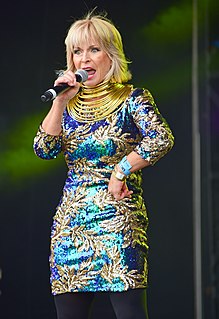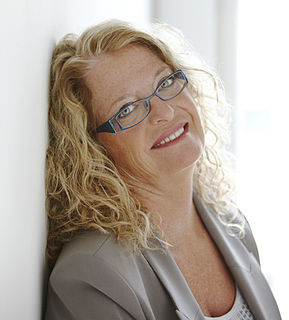A Quote by Laura Marling
Rilke has a very bizarre relationship to women because his mother had an older child, a girl who died when she was a baby. So when Rilke was born she named him Sophie and dressed him as a girl until he was 7. And psychologically, the repercussions of that made him the genius that he is. By the time he was 35, he was continuously falling in love with older women, mother figures, spiritual mothers.
Related Quotes
Billy covered his head with his blanket. He always covered his head when his mother came to see him in the mental ward - always got much sicker until she went away. It wasn’t that she was ugly, or had bad breath or a bad personality. She was a perfectly nice, standard-issue, brown-haired, white woman with a high school education. She upset Billy simply by being his mother. She made him feel embarrassed and ungrateful and weak because she had gone through so much trouble to give him life, and to keep that life going, and Billy didn’t really like life at all.
The great constructive energies of the child ... have hitherto been concealed beneath an accumulation of ideas concerning motherhood. We used to say it was the mother who formed the child; for it is she who teaches him to walk, talk, and so on. But none of this is really done by the mother. It is an achievement of the child. What the mother brings forth is the baby, but it is the baby who produces the man. Should the mother die, the baby still grows up and completes his work of making the man.
Basically what Salomé did with Rilke as a mentor was direct him toward the Russian Orthodox Church, so he could project his love of the divine feminine onto the Virgin Mary. She wanted him to stop the cycle of being disappointed by the ultimate humanity of women. She was like, "You don't want me, you want the Virgin Mary." It's kind of a mystical concept! She also changed Freud's opinion, a little bit too late, about the female psyche, which he had so wrong. If it had been better publicized, it would have changed Western society's perception of the female psyche, too.
Once," Balinda begins softly, "when I was in the emergency room with my mother they brought in a murderer who had been shot and was dying, right there in front of us. I watched as the nurse touched his face and reassured him and I could not believe they were being so nice to him.""What happened?" Jill asked."My mother rose up, took my arm, gripped it as if she was a weight lifter and said, 'he was a beautiful baby once and his mother loved him'.
Even his highly emotional Italian mother didn't believe that true love could blossom overnight. Like his brothers and sisters-in-law, she wanted nothing more for him than to marry and start a family, but if he showed up at her doorstep and said that he'd met someone two days ago and knew she was the one for him, his mother would smack him with a broom, curse in Italian, and drag him to church, sure that he had some serious sins that needed confessing.
So this is the young man who has intentions toward my little girl." Bobby shifted in his seat and crossed his legs. "It is not fun on this side of the table, is it, Robert?" Uncle Eddie huffed, and Kat had to remember that once upon a time her mother had been a dark-haired girl in that kitchen, and her dad had been the stray she'd brought home. She watched the two men looking at Hale as if they'd never before laid eyes on him. "He's better-looking than the last vagabond I had to take in," Eddie said, standing and carrying empty bowls to the sink. "I'll give him that.
I love John F. Kennedy. My mother had been a worker on his campaign and adored him. I was just a kid when he was around. I did a lot of preparation, a lot of research. I can't do him... I sort of get a slight Boston accent, and I tried to get his rhythm. My only fear was that I was too old to play him, because I was much older than he was when he died, so I was concerned about that. But it was one of those, "Oh what the hell, I'm doing this. It's a great part, and I'm going for it."
My mother was not a country girl. She was a Brooklyn girl, born and raised in Flatbush, and then a Long Island girl, who liked shopping, 'a little glitter' in her clothes, and keeping secret the actual color of her hair, which from the day I was born to the day she died, was the 'platinum blonde' of Jean Harlow's.
As Anna Freud remarked, the toddler who wanders off into some other aisle, feels lost, and screams anxiously for his mother neversays "I got lost," but accusingly says "You lost me!" It is a rare mother who agrees that she lost him! she expects her child to stay with her; in her experience it is the child who has lost track of the mother, while in the child's experience it is the mother who has lost track of him. Each view is entirely correct from the perspective of the individual who holds it .
I've got two older sisters, which I think was the best thing, but also the worst thing. They dressed me up like a girl, but at the same time I think they taught me a lot of what they experienced and what they lived through, and passed that on to me as a young man and influenced how I approached not only women, but people. I got very lucky with the family I was born into. From my older sisters to my mother and father, they're just good, kind-hearted people.


































